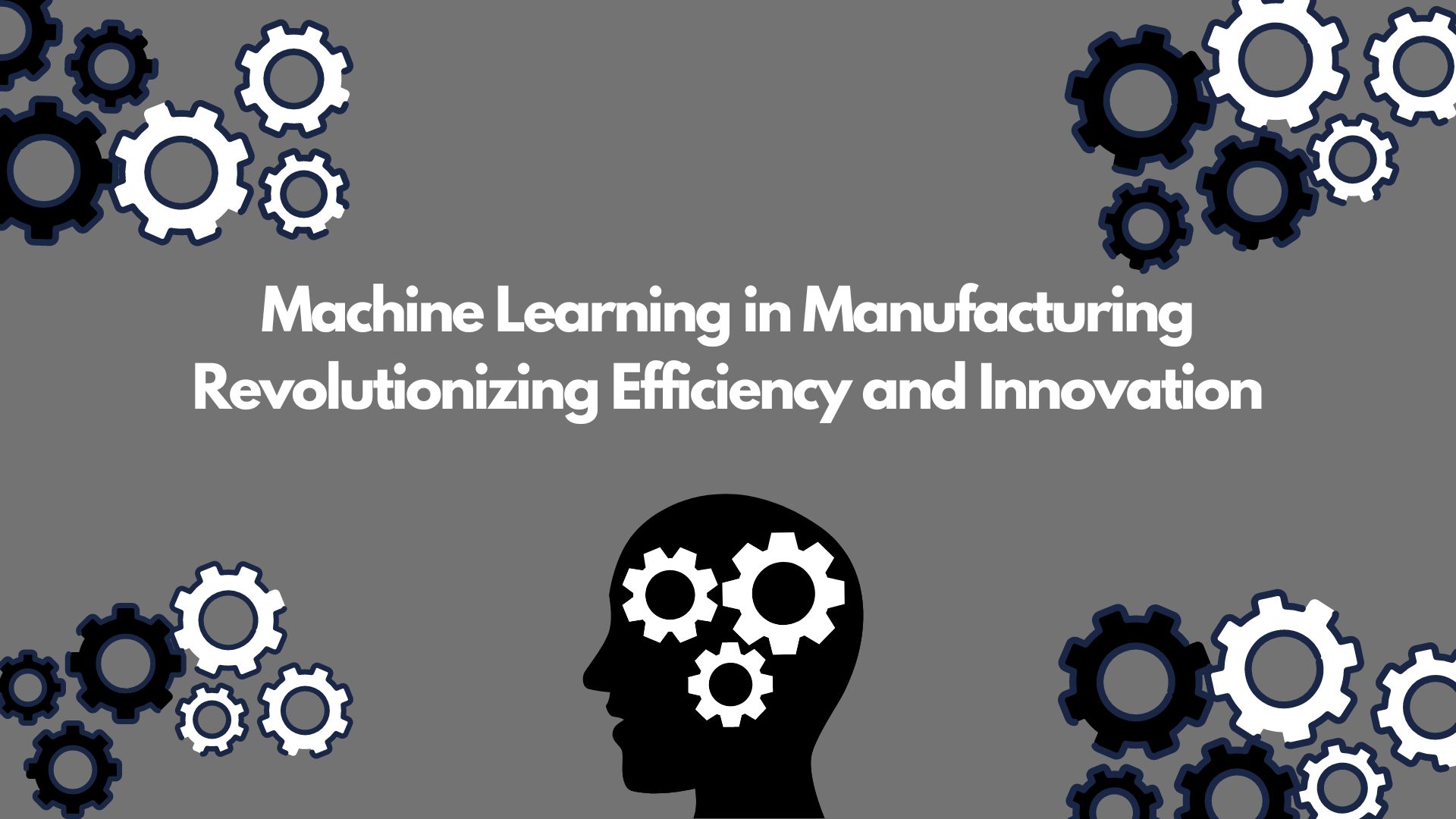Introduction
Machine learning is at the forefront of the technological revolution in manufacturing. By integrating machine learning into production processes, manufacturers are achieving unprecedented levels of efficiency, precision, and innovation. This blog explores the impact of machine learning on manufacturing, the key technologies involved, and the benefits and challenges of adopting this transformative approach.
The Impact of Machine Learning on Manufacturing
Predictive Maintenance: Machine learning algorithms analyze historical and real-time data from equipment to predict potential failures before they occur. This proactive approach reduces downtime, extends the lifespan of machinery, and lowers maintenance costs.
Quality Control: Advanced machine learning models detect defects and inconsistencies in real-time, ensuring high-quality products. By continuously learning from production data, these models improve their accuracy and effectiveness over time.
Supply Chain Optimization: Machine learning enhances supply chain efficiency by predicting demand, optimizing inventory levels, and improving logistics. This leads to reduced costs, minimized waste, and timely delivery of products.
Process Automation: Machine learning automates complex and repetitive tasks, increasing production speed and accuracy. This allows human workers to focus on more strategic and creative aspects of manufacturing.
Customization and Personalization: Machine learning enables manufacturers to offer customized products tailored to individual customer preferences. This flexibility helps meet market demands and enhances customer satisfaction.
Key Technologies Enabling Machine Learning in Manufacturing
Data Analytics: Data analytics platforms process and analyze large volumes of data collected from various sources, providing insights into production processes, equipment performance, and market trends.
Computer Vision: Computer vision systems use machine learning to interpret and understand visual data from cameras and sensors. These systems are crucial for automated quality inspection, defect detection, and process monitoring.
Natural Language Processing (NLP): NLP allows machines to understand and interpret human language, facilitating better communication and collaboration between human workers and automated systems.
Robotics: Advanced robotics leverage machine learning to perform complex tasks with high precision and adaptability. These robots can learn from their environment and improve their performance over time.
Simulation and Digital Twins: Digital twins are virtual replicas of physical assets, created using data from sensors and machines. Machine learning enhances these simulations, allowing manufacturers to optimize production processes and predict potential issues.
Benefits of Machine Learning in Manufacturing
Increased Efficiency: By automating processes and optimizing operations, machine learning significantly improves manufacturing efficiency and productivity.
Cost Reduction: Machine learning reduces operational costs by minimizing downtime, optimizing resource use, and improving supply chain management.
Enhanced Product Quality: Real-time quality control and defect detection ensure that products meet high standards, reducing waste and enhancing customer satisfaction.
Flexibility and Adaptability: Machine learning systems can quickly adapt to changes in production requirements and market demands, providing manufacturers with greater flexibility.
Data-Driven Decision Making: Machine learning provides valuable insights into production processes and market trends, enabling informed and strategic decision-making.
Challenges of Implementing Machine Learning
Data Quality and Quantity: Effective machine learning models require large amounts of high-quality data. Ensuring the availability and accuracy of this data can be challenging.
Technical Expertise: Implementing machine learning solutions requires specialized technical skills and knowledge, which may necessitate training and hiring of skilled personnel.
Integration with Existing Systems: Integrating machine learning technologies with existing manufacturing systems and processes can be complex and require careful planning.
Initial Investment: The cost of developing and deploying machine learning solutions can be high, posing a barrier for some manufacturers.
Cybersecurity Risks: Increased connectivity and data sharing associated with machine learning systems expose manufacturers to cybersecurity threats. Robust security measures are essential to protect sensitive data.
Case Study: Machine Learning in Action
A leading automotive manufacturer, [Company Name], implemented machine learning to enhance its production capabilities. Key initiatives included:
Predictive Maintenance: Deploying machine learning algorithms to analyze sensor data from production equipment and predict maintenance needs. This reduced downtime by 40% and extended the lifespan of critical machinery.
Quality Inspection: Using computer vision systems to inspect parts in real-time for defects and inconsistencies. This resulted in a 30% reduction in defective products and improved overall product quality.
Supply Chain Optimization: Implementing machine learning models to predict demand and optimize inventory levels. This improved supply chain efficiency and reduced inventory holding costs by 25%.
Robotic Process Automation: Leveraging advanced robotics for complex assembly tasks, enhancing precision and speed in production processes.
These initiatives not only improved operational performance but also positioned [Company Name] as a leader in innovation and efficiency in the automotive industry.
Conclusion
Machine learning is revolutionizing the manufacturing industry by enhancing efficiency, precision, and innovation. By leveraging data analytics, computer vision, natural language processing, robotics, and digital twins, manufacturers can achieve significant improvements in productivity, quality, and flexibility. While the adoption of machine learning presents challenges such as data requirements, technical expertise, integration complexities, initial investment, and cybersecurity risks, the long-term benefits far outweigh these hurdles. As manufacturers continue to adopt and refine machine learning technologies, they will be well-equipped to navigate the complexities of modern manufacturing and drive long-term success.









